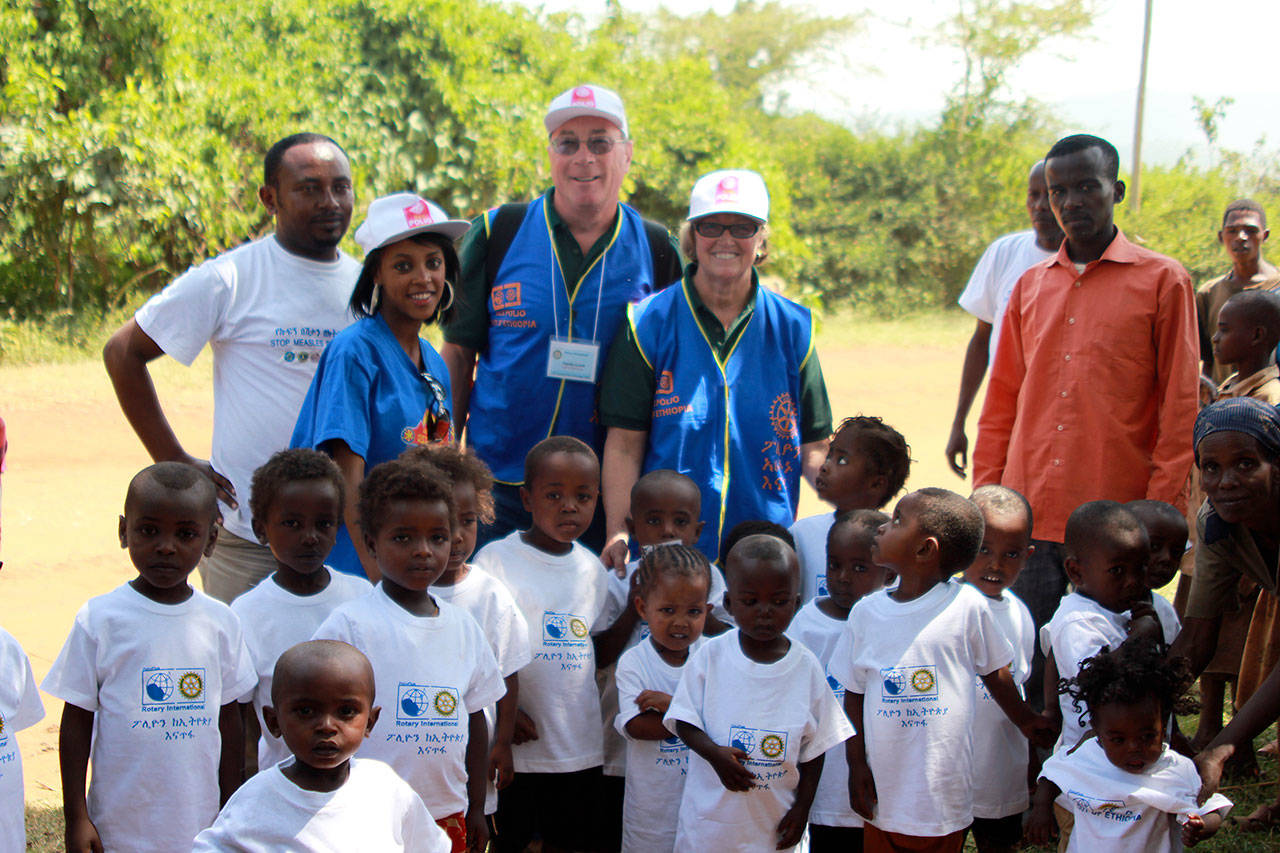Some say one could throw a rock in any direction on Whidbey and hit a nonprofit or charity.
Sometimes, that giving nature extends beyond America’s borders.
That’s the case with Clinton residents and altruists Tim and Harriet Arnold. The Arnolds are departing for Ethiopia on Thursday to see their charitable efforts materialize. They’ve led an effort to construct a sanitized water system in the East African country.
“It’s a huge water project,” Harriet Arnold said. “Our target is to make clean water accessible to 30,000 people. The sad thing is a lot of children die before their fifth birthdays because of waterborne diseases. It’s rampant.”
Tim Arnold spearheaded the effort to bring clean water to a rural area of Ethiopia. Constructed “about 100 miles north of Addis Ababa,” Ethiopia’s capital, Arnold and fellow altruists raised $800,000 to fund the project. The water system they’re installing will provide a sanitation system and a network of wells for rural communities. Previously, villagers were required to walk long distances to gather the day’s water.
According to Harriet Arnold, people sometimes walked “two hours each way” to their clean water source. Even then, the water was muddy beyond the Arnolds’ belief.
“What they were getting from these wells and rivers looks like a mud puddle,” Harriet Arnold said. “At the same time, you’ll see kids are swimming in that same river and right above them, oxen and camels are standing in the water.”
The project was taken on by Rotary International, which the Arnolds are part of, and humanitarian aid organization World Vision. The idea to install a new water system stemmed from earlier trips to Ethiopia in 2004 and 2010, when Tim and Harriet Arnold were there on behalf of Rotary International to rid the area of polio. When they both went in 2010 and saw polio was close to being rooted out in all of Africa, they started to talk about clean water.
The Arnolds are volunteers with Rotary Club of Redmond, and the project was completed by a volunteer team.
After years of Tim Arnold leading fundraising efforts and grant applications, the project is “probably 85 percent” complete. The system has “several water and wash stations” and seven different wells. Rotary International has worked with local communities to ensure they can fully operate the system on their own.
“The idea is we’ve brought the project into these villages and it becomes theirs,” Tim Arnold said. “They own it, it’s their facilities, and they collect small sums of money for maintenance so it works 10 years from now.”
Harriet Arnold hopes access to clean water can help women in the area achieve their potential. It’s typically women who are tasked with fetching the day’s water, she says, often preventing them from attending school alongside their brothers. Arnold hopes making clean water more accessible to the area’s villagers will allow the girls to swap their water jugs with books.
“When you see the difference this makes in villages, it’s amazing,” Harriet Arnold said. “I think it’s a crime our part of the world does nothing and let’s others suffer.”


